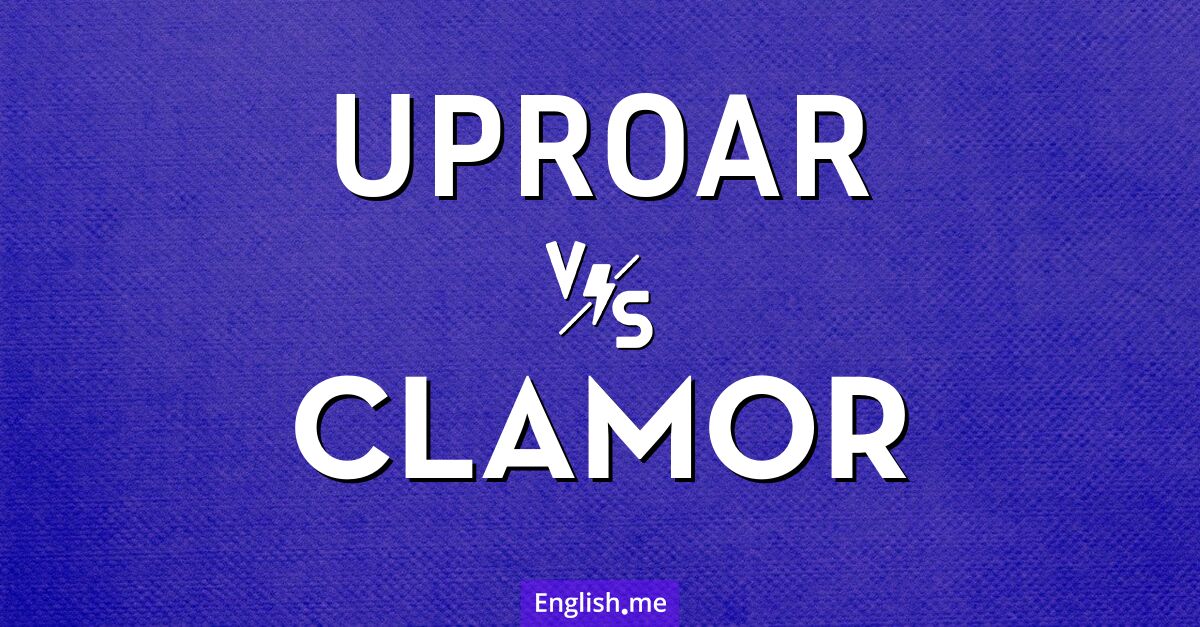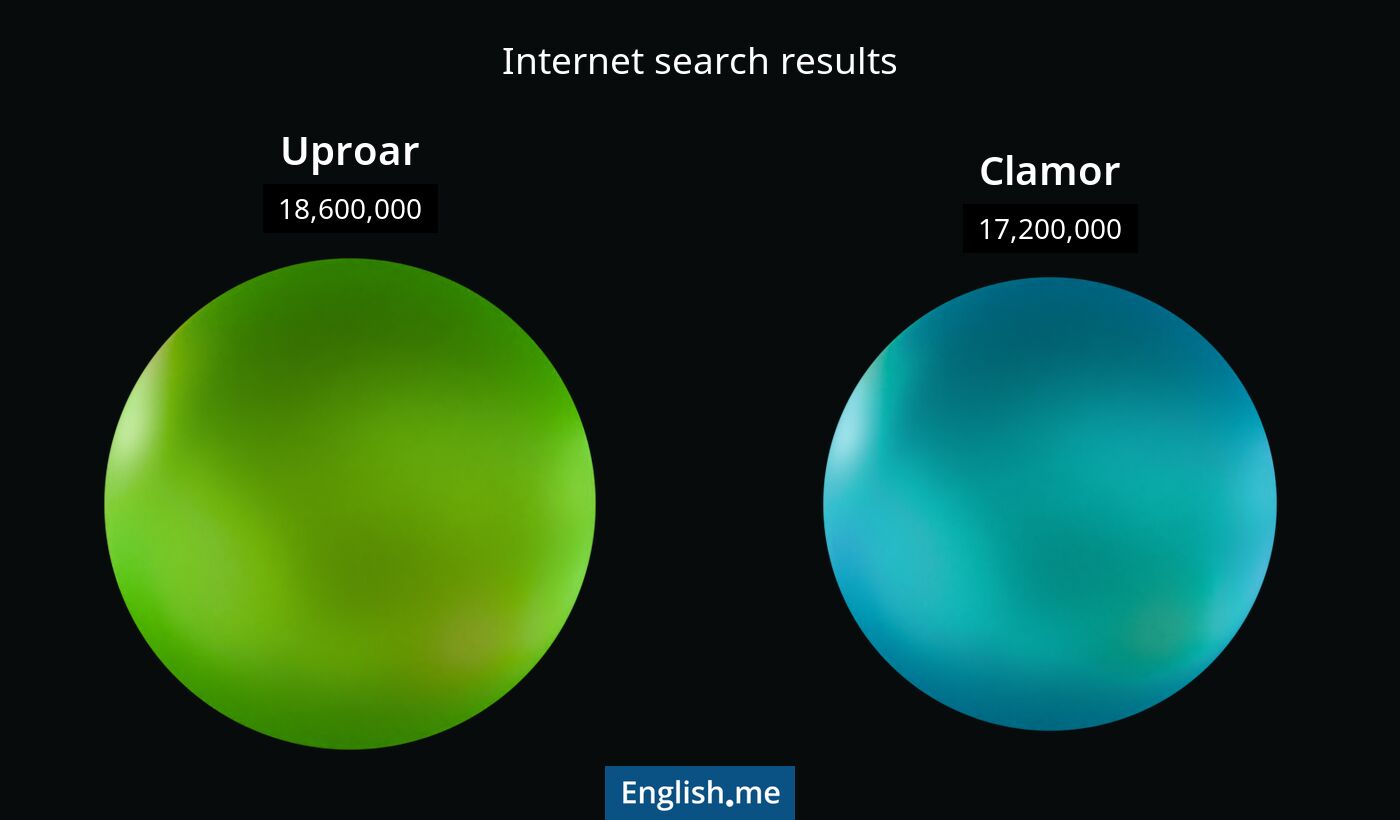Noise and nuance: "uproar" vs "clamor"
Reviewed and edited by  Lloyd Cooper 17/01/2025, 17:44
Lloyd Cooper 17/01/2025, 17:44
English.me team member

 What is similar?
What is similar?
Both "uproar" and "clamor" refer to loud noises or commotion involving groups of people. They can both describe situations where there is a public outcry, protest, or a collective expression of emotion.
 What is different?
What is different?
"Uproar" often implies a chaotic and noisy disturbance marked by confusion or turmoil, emphasizing the disorderly aspect of the noise. "Clamor" typically refers to a loud and persistent noise, especially from people shouting vehemently or demanding something, focusing on the vocal expression of demands or dissatisfaction.
 Which one is more common?
Which one is more common?

 Examples of usage
Examples of usage
Uproar- The proposal to increase taxes caused an uproar among the citizens.
- There was an uproar in the hall when the results were announced.
- The decision to cancel the show led to an uproar from the fans.
- The crowd began to clamor for the singer to perform another song.
- Residents are clamoring for improved safety measures in the neighborhood.
- Shareholders clamored for answers during the heated meeting.

 English
English español
español française
française italiano
italiano deutsche
deutsche 日本語
日本語 polski
polski česky
česky svenska
svenska Türkçe
Türkçe Nederlands
Nederlands